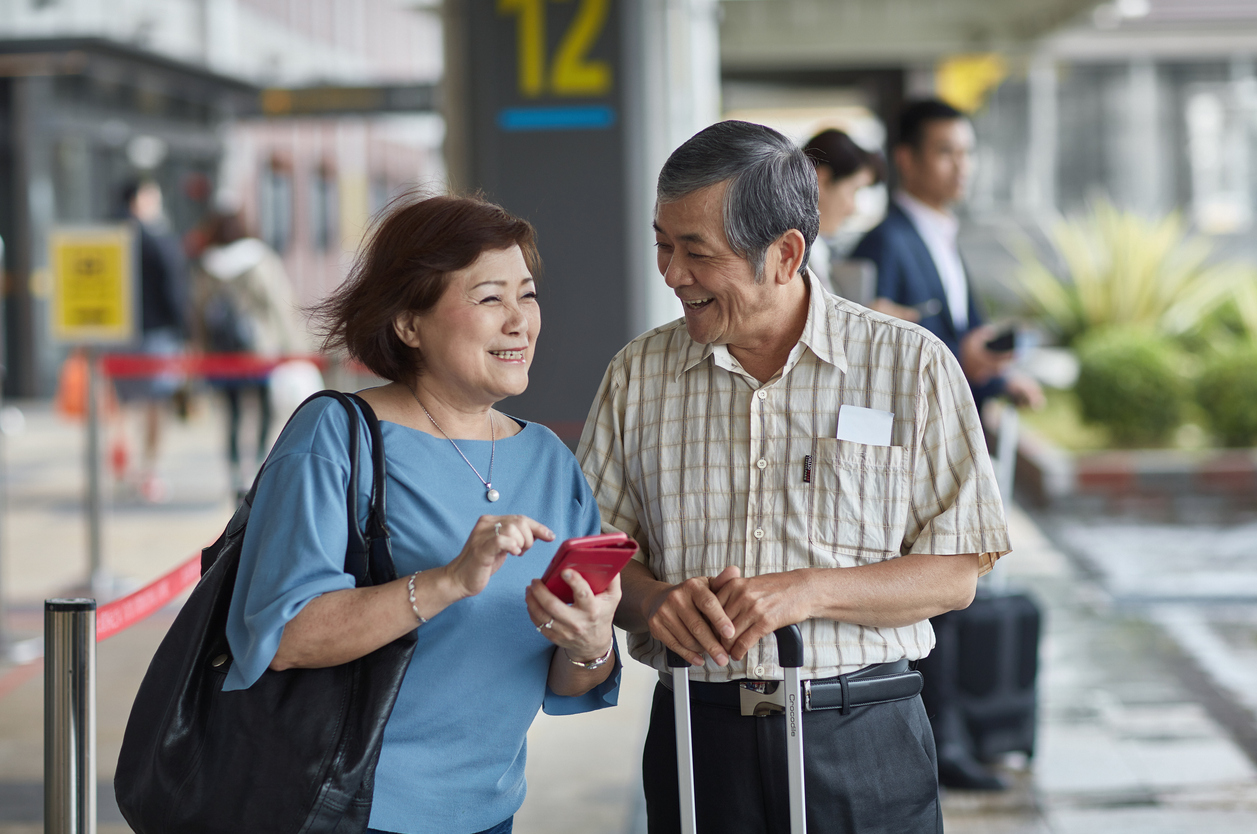With a return to cross-country and cross-continent travel well underway, seniors are heading around the world to enjoy adventures and relax in exotic locations. Senior travel is a top priority for many older adults who have the time and resources to see the sights with friends or visit loved ones. If you are planning a trip, it’s important to have a solid understanding of what you will need to travel safely and without delay. With the perfect roadmap, you will also be able to have uninterrupted fun!

With a return to cross-country and cross-continent travel well underway, seniors are heading around the world to enjoy adventures and relax in exotic locations. Senior travel is a top priority for many older adults who have the time and resources to see the sights with friends or visit loved ones. If you are planning a trip, it’s important to have a solid understanding of what you will need to travel safely and without delay. With the perfect roadmap, you will also be able to have uninterrupted fun!
Life Care Services® has put together a list of seven of the best senior travel tips so you have an easy-to-follow plan to make your trip memorable.
Start Planning Early
When it comes to travel for seniors, a well-thought-out plan should be created far in advance of your trip. By planning early, you can:
- Save on costs when booking travel, lodging, and dining.
- Weigh your location options (there are so many great senior vacation destinations!)
- Schedule your trip around events and activities.
- Research senior travel discounts.
- Give your family and friends time to know when you will be gone.
While every travel situation is different, it’s best to begin to develop a plan roughly one year in advance.
Consider a Senior Travel Group
Vacations for seniors are often made that much better with group travel. These trips are planned with senior mobility and interests in mind. A travel group is also a great way to form friendships with other seniors who will be joining in on the experience!
Secure Important Documentation and Local Currency
The type of identification you will need to travel as a senior depends on where you are headed. However, every senior traveler should have a valid, state-issued identification card. If you are traveling abroad, a passport and any foreign documentation will be required, which can also include proper information for medication.
Additionally, you will want to secure local currency or have a plan to do so when U.S. currency is no longer used. An exchange is usually the cheapest at your bank or credit union (and their overseas ATMs, if available). Try to avoid exchanges at airport kiosks or in foreign retail stores as high rates and fees can be costly.
Coordinate Medical and Physical Support
Having a plan for medical and physical assistance is one of the most important senior travel tips to remember. If these measures are necessary, a professional caregiver should be available to administer medication, use medical equipment, and/or help with physical transfers, getting dressed, and other needs.
If you plan to travel to another country and use Medicare for any part of your normal medical coverage at home, Medicare won’t normally cover health care while you are traveling outside of the U.S. However, there are some exceptions if you require inpatient hospital care, access to a doctor, or ambulance services.
Gather Essential Travel Items
The more luggage you bring, the more it will cost to travel and you will have a heavier load to carry. Pack light and bring enough clothes to last at least a week. Depending on where you are traveling, there will usually be an opportunity to launder your clothes.
In addition to clothing, you will want to make sure to bring only the most important items to get you through the trip comfortably. Here are some of the best travel items for seniors:
- Comfortable shoes and a pair of boots or hiking shoes (if applicable).
- Raincoat/poncho.
- Electronics converters for foreign plugs.
- Backpack for daily carry-on items.
- Mobility equipment.
- Copies of important documents in case of lost or stolen items.
Store your possessions in wheeled luggage for easy transit around the airport and to bring your bags from your room to the bus.
Check in and Arrive Early
Boarding a plane or train can be stressful, especially if you are behind schedule. Many airlines allow you to check in the night before your flight through an app or online portal. You can even print your boarding pass at home to save a step at the airport. On travel day, arrive early at your departure location, as long lines can back up security and customs checkpoints. For seniors who may have medication and medically approved liquids, separate your items and keep them accessible when passing through security, in case of any questions. The U.S. Transportation Security Administration (TSA) provides several resources to circumvent pre-screening delays, especially for seniors who may have disabilities or medical conditions. Travelers who have a verified TSA PreCheck® designation may not need to remove shoes, laptops, 3-1-1 liquids, belts, or light jackets during the screening process.
Participate (But Choose Your Own Adventure!)
If you are in a senior travel group or on a pre-planned vacation, you will get the most out of your trip through participation in activities and new experiences. It’s ok to go outside of your comfort zone! Enjoy everything your destination has to offer. At the same time, it’s also acceptable to take time for yourself and find your own interests if you have a free day or just want to relax.
Coast to Coast Communities at Life Care Services
No matter where your adventure takes you, Life Care Services is right where you want to be when you return. We have more than 130 communities across the U.S. with a wide variety of options for care, support, and friendship with other community members. Find a community and visit us, today!



